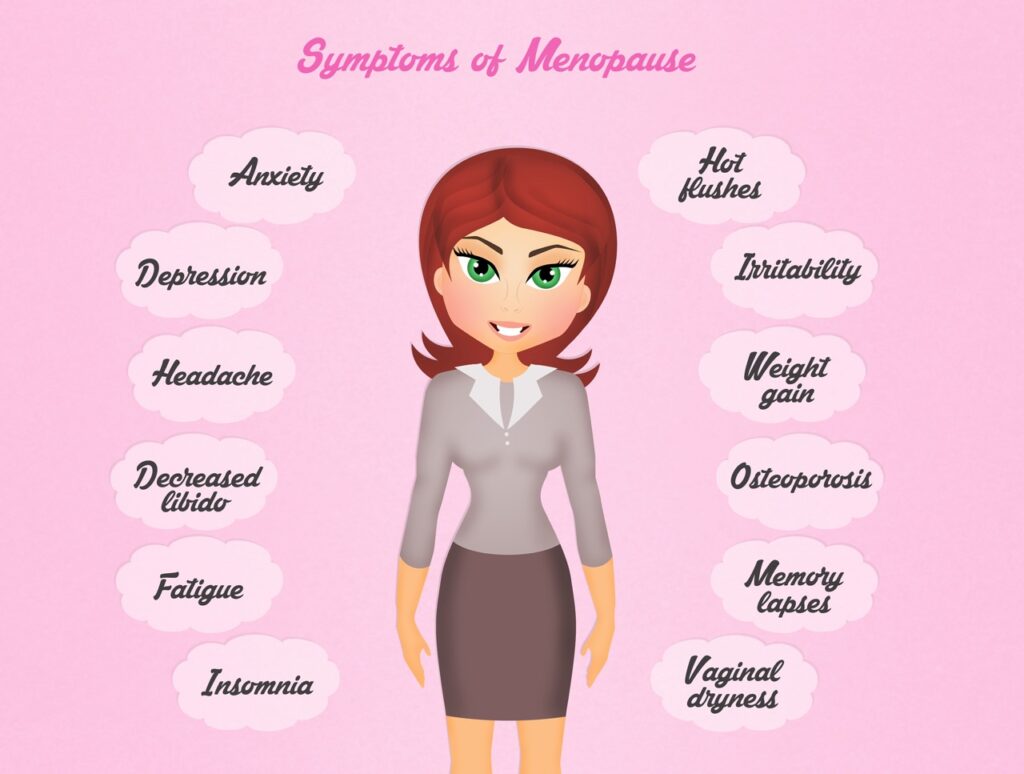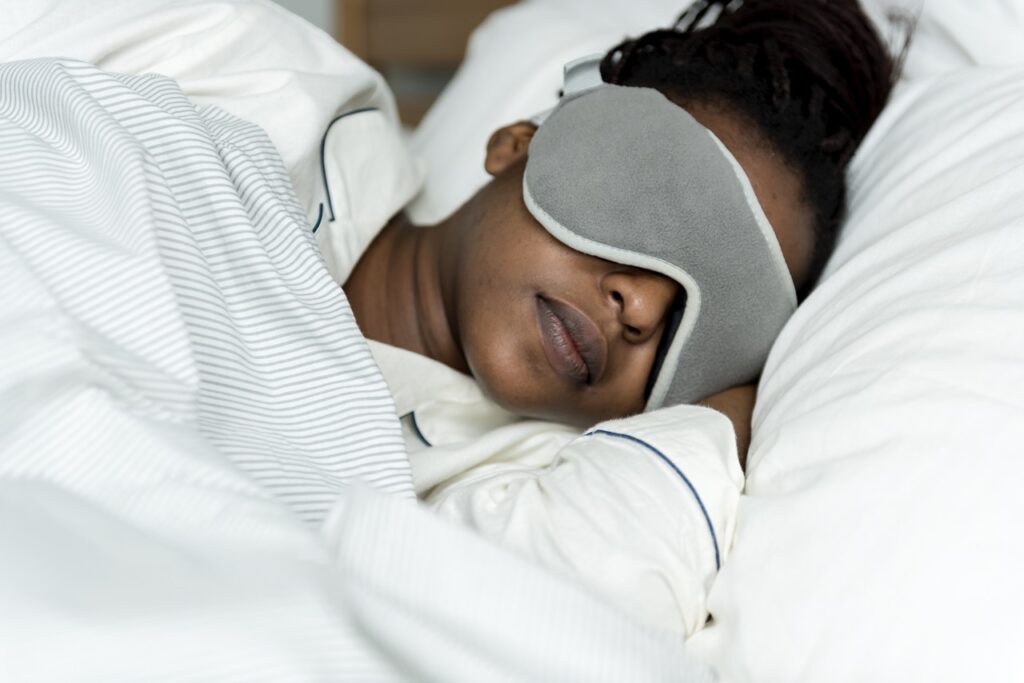Coping with menopause stress and anxiety can be challenging and overwhelming. This blog shares 10 practical tips and strategies from Health and Wellness Coach Dr. Darlene Thomas to help navigate this phase more easily.
Understand and Educate Yourself

One of the main reasons women feel stressed during menopause is because of the unexpected changes they experience. Hot flashes, sleep disturbances, mood swings, and other symptoms can be alarming if you’re unprepared. By educating yourself about what to expect, you can approach these changes with a proactive mindset. Talking to a health and wellness coach or doctor can provide invaluable insights.
Mindfulness and Meditation

Practicing mindfulness can help you stay grounded during moments of anxiety. Simple breathing exercises or meditation practices, even for just a few minutes daily, can significantly reduce stress levels. Mindfulness helps you focus on the present moment instead of worrying about the past or future. To read more about mindfulness and mindfulness techniques, read our blog Mindfulness Made Easy: 5 Tips To Become A Calmer, Happier You. You should also consider joining a local meditation group or using apps designed by a health and wellness coach or other professional to guide you through breathing and meditation exercises.
Stay Active

Regular exercise has been shown to reduce anxiety and improve mood. This doesn’t mean you need to run a marathon. Finding a routine that suits you can make a huge difference. Exercise releases endorphins, which are natural mood boosters, and can also help manage other menopausal symptoms like weight gain and sleep disturbances.
Seek Support
Remember, you’re not alone in this journey. Talking to friends who are going through the same phase can provide comfort. Consider joining menopause support groups, either in person or online. Sharing experiences, fears, and coping strategies can be therapeutic. Additionally, seeking professional help from a health and wellness coach or counselor can benefit women who are experiencing severe anxiety or depressive symptoms.
Maintain a Balanced Diet

What you eat can profoundly affect your mood and energy levels. Consuming a balanced diet rich in fruits, vegetables, whole grains, and lean proteins can ensure you get the necessary nutrients. Reducing caffeine and alcohol can help manage sleep disturbances and mood swings.
Prioritize Sleep

Sleep disturbances are common during menopause. It’s important to manage this because good sleep is crucial for managing stress and maintaining overall health. Create a sleep-conducive environment by keeping your bedroom cool, dark, and quiet. Limit screen time before bed and consider relaxation techniques or reading a book to wind down. If sleep disturbances continue, consult a health and wellness coach or doctor.
Establish a Routine
Having a daily routine can provide a sense of normalcy and structure. Regular meals, exercise, relaxation periods, and sleep can stabilize your mood and energy levels. A structured routine can be beneficial because it can anchor you during difficult times.
Limit Stimulants and Sugar
Caffeine, nicotine, and excessive sugar can worsen anxiety and disrupt sleep patterns. Consider reducing your intake of coffee, teas with caffeine, sugary snacks, and sodas. Replace them with herbal teas, water, and healthier snack alternatives.
Engage in Creative Outlets

Starting a hobby or engaging in creative activities can be therapeutic. Whether it’s painting, writing, gardening, crafting, or any other form of self-expression, these activities can act as a distraction, offer a sense of accomplishment, and provide a way to process emotions.
Stay Hydrated

Changes in hormone levels during menopause can lead to dryness in various body parts, including the skin. Dehydration can also affect your mood and energy levels. Drinking several glasses of water throughout the day can help alleviate some of these symptoms and help manage hot flashes. Carry a reusable water bottle with you and set reminders to drink periodically. Good hydration supports overall well-being and can act as a simple and effective way to control some menopausal discomforts.

Menopause can be challenging, but it doesn’t have to drastically affect the quality of your life. By adopting these coping strategies, you can manage the stress and anxiety and embrace the transition. Every woman’s experience with menopause is unique, so it’s important to find what works best for you and seek support when needed.








